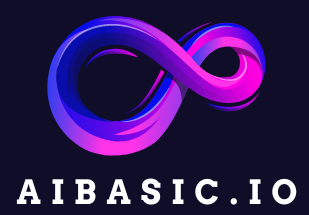AI Tools for Healthcare: Revolutionizing Medicine
Did you know AI tools can do better than humans in many healthcare areas? They really help improve how accurate diagnoses are.
Healthcare is facing big problems like high costs and more chronic diseases. Using artificial intelligence is becoming more important than ever. Studies show AI can make diagnoses more accurate, cut costs, and save time. It also helps reduce mistakes made by humans1.
AI is changing personalized medicine and how we use drugs. It’s also helping manage health for whole populations2. As AI gets smarter, it’s being used in genomics, finding new drugs, and even helping with virtual healthcare. The real benefits of AI in healthcare are already showing up, leading to better care and smarter use of resources.

There’s a lot of interest in AI for healthcare, with over 157k people looking at recent studies. As technology keeps getting better, using AI in healthcare is key to facing the future of medicine.
Key Takeaways
- AI tools can outperform human capabilities in healthcare diagnostics and decision-making.
- Adoption of AI technologies can lead to reduced operational costs and increased efficiency.
- AI is integral to developing personalized treatment plans, enhancing patient engagement, and streamlining healthcare operations.
- Despite its advantages, challenges like data privacy and integration costs must be addressed for broader acceptance.
- Continuous advancements in AI are expected to reshape the future of medical care significantly.
Introduction to AI in Healthcare
Artificial Intelligence (AI) is when machines act like humans. In healthcare, it includes machine learning, deep learning, and natural language processing. These help machines do tasks that humans usually do. With more people needing healthcare, AI is key.
By 2030, there could be a huge gap in healthcare workers. The world might also lack 18 million healthcare professionals, including 5 million doctors3.
Definition of Artificial Intelligence
AI, especially machine learning, is getting more common. It’s great at analyzing data. In healthcare, it helps make models that learn from data.
A 2018 Deloitte survey found 63% of companies using AI were using machine learning4. AI also uses deep learning for better image recognition and understanding language. For example, it can make detailed patient reports from clinical notes4.
Overview of AI’s role in medicine
AI is playing a big role in medicine. It helps with diagnosing, planning treatments, and managing tasks. AI can even predict problems and help doctors make decisions3.
Over 500 AI systems are FDA certified. They help doctors with things like heart tests and finding breast cancer5. But, using AI in healthcare fully is still a challenge. It needs both medical and technical skills to work well5.
Key Innovations in AI Tools for Healthcare
Recent advancements in ai healthcare innovation have changed the face of healthcare technology. Healthcare professionals now use cutting-edge AI solutions for better, faster, and more accurate care. These innovations make workflows smoother, improve diagnosis, and speed up research, all for the betterment of patient care.
Recent breakthroughs in AI technologies
One big leap is AI algorithms that quickly analyze medical images for faster, more accurate diagnoses. For example, AI-based lung nodule detection systems are 26% faster than old methods, catching more nodules6. Also, Automatic Speech Recognition technology makes writing down what’s said much easier7.
Examples of successful AI implementations
Hospitals are seeing big wins from AI tools. For instance, one hospital cut serious adverse events by 35% and cardiac arrests by over 86% with AI6. The Rothman Index, from PeraHealth, has helped Yale-New Haven Health lower sepsis mortality by 29%6.
AI also helps manage hospital resources better by predicting patient flow6. It’s a key tool for better diagnostics and smoother operations. AI is at the heart of modern healthcare analytics tools, leading to better patient care and less human error7.
| AI Technology | Benefit | Statistic |
|---|---|---|
| Medical Imaging Algorithms | Rapid Diagnosis | Analyzes data 26% faster |
| AI-Enabled Tools | Event Reduction | 35% reduction in serious adverse events |
| Rothman Index | Disease Detection | 29% decrease in sepsis mortality rates |
| Speech Recognition | Documentation Efficiency | Improves documentation speed |
In conclusion, AI is transforming healthcare technology into a more efficient and precise field. By using these innovations, healthcare can improve its services, focus on patient safety, and better outcomes76.
AI Applications in Disease Diagnosis
AI has changed how we diagnose diseases, making it more accurate. It uses machine learning for healthcare to look at big data and find patterns humans might miss. Thanks to healthcare analytics and AI in medical imaging, we can now diagnose better than before.
Enhancing diagnostic accuracy with AI
AI is key in making diagnoses more precise. It can quickly go through imaging data, helping doctors make quicker and smarter choices. It also helps spot diseases early and cuts down on wrong diagnoses, which is good for patients.
Almost 400 AI tools for radiology have been approved by the FDA. This shows how much AI is being used in healthcare today8.
Case studies of AI diagnostics in cancer and other diseases
AI is making a big difference in cancer diagnosis. For example, it’s helping find breast cancer more accurately, reducing mistakes. It’s also good at spotting diabetic retinopathy and reading EKGs, showing its wide range of uses.
The use of AI in healthcare is expected to grow a lot in the next five years. This shows its big impact on medical fields8.
Artificial Intelligence Healthcare Solutions for Treatment
Artificial Intelligence is changing healthcare, especially in finding new treatments. It focuses on personalized medicine, making plans just for each patient. This approach makes care more relevant, effective, and timely.
Personalized medicine through AI
AI looks at lots of patient data to find the best treatments. Studies show AI can cut patient recovery times by 21%9. It can also meet 20% of healthcare needs that are currently unmet9.
AI’s role in therapeutic drug development
AI is key in making new drugs and treatments. It makes research faster and more efficient10. For example, AI can automate workflows, cutting wait times and improving how resources are used10.

Healthcare Analytics: Leveraging Data for Better Outcomes
The healthcare industry is changing fast. More organizations are using healthcare analytics to improve patient care. With more big data, healthcare data analytics is key to solving many challenges. Advanced analytics tools help find insights for better patient care and more efficient operations.
The importance of healthcare data analytics
Healthcare analytics is crucial for modern medicine. It gives insights for better decision-making. The US “AI in healthcare” market is expected to grow by 36% from 2023 to 2030, says Grand View Research11.
Healthcare workers now see the need for better skills in machine learning and data analytics. This is to use generative AI tools well in healthcare data analytics11. It helps in better clinical trial recruitment and reduces data bias, giving a clearer view of healthcare outcomes11. The digital age makes it even more important to have accurate and reliable data. This data is key to understanding disease progression and keeping track of patient conditions12.
Predictive analytics in improving patient care
Predictive analytics is key to better patient care strategies. It uses data like lifestyle habits and environmental conditions to predict chronic disease risk13. The drop in chronic diseases like diabetes and COPD shows the power of predictive analytics13.
Generative AI technologies help healthcare organizations forecast patient flow and needs better13. This lets clinics and hospitals use resources better, helping staff and patients12.
| Feature | Impact of Healthcare Analytics |
|---|---|
| Data-Driven Insights | Enhances decision-making and operational efficiency |
| Predictive Models | Identifies patient risks and improves chronic disease management |
| AI Integration | Optimizes patient flow and resource allocation |
| Collaboration | Fosters team-based decision-making and problem-solving |
Using these healthcare technology solutions leads to a better approach to patient care. It helps healthcare providers keep up with the changing world of healthcare analytics. This way, they can improve patient outcomes across the board111312.
AI Healthcare Applications for Patient Engagement
Engaging patients is key to better health outcomes and experiences. AI in healthcare makes communication between patients and doctors better. It gives patients the power to take charge of their health.
Improving patient communication with AI tools
AI tools like virtual health assistants are changing how we talk to patients. They provide quick answers and information. For example, they can handle many patient questions, freeing up doctors’ time14.
A study found that 78% of patients like AI’s answers better than doctors’. They find the responses more empathetic and detailed15. This makes patients feel more connected, letting them book appointments and get health tips easily.
Virtual health assistants and their impact
Virtual health assistants are playing a big role in patient care. They make booking appointments easier and cut down on missed visits. They also make the patient experience better.
AI connected to devices lets doctors keep an eye on patients’ health all the time. This gives doctors a full picture of a patient’s health14. Using AI can also make healthcare faster and more efficient14.

Challenges in Implementing AI in Healthcare
Adding artificial intelligence to healthcare systems is tough. It’s key to know the hurdles AI faces in healthcare to unlock its full power. Data privacy and ethics are especially important in making AI safe and useful.
Data privacy and ethical concerns
Keeping patient data safe is crucial as tech use grows. Strong rules are needed to prevent data leaks and build trust. Looking into AI’s choices also adds to the complexity of using it.
Barriers to adoption of AI technologies in healthcare
Healthcare groups face many barriers to adoption that slow down progress. A study with 26 leaders found big hurdles like outside pressures and the need for change16. Leaders’ doubts about AI’s value also slow things down16. Working together is key to making AI work in healthcare16.
| Challenge | Description |
|---|---|
| Data Privacy | Ensuring secure handling of patient information in AI systems. |
| Ethical Concerns | Addressing implications of AI decision-making on patient care. |
| Resistance from Leadership | Hesitation among leaders hinders AI adoption due to trust issues. |
| Organizational Readiness | Healthcare institutions need effective strategies for integrating AI. |
| Collaboration Requirements | Partnerships between organizations are essential for success. |
By tackling these issues, AI can greatly improve healthcare and patient results. This could lead to a more effective system17.
The Future of AI Tools for Healthcare
AI tools in healthcare are on the verge of a big leap forward. This is thanks to new advancements in machine learning and data analysis. We’ll see more personalized treatments that meet each patient’s unique needs.
AI can quickly analyze medical data. This means doctors can make better diagnoses and work more efficiently. Patients will get better care and have a better experience overall1819.
Trends shaping AI in the healthcare sector
AI is becoming key in solving healthcare’s big challenges, like using data better. Right now, 97% of healthcare data goes unused. AI can help use this data to make better decisions19.
AI can also help with chronic problems like sepsis, which causes 20% of deaths worldwide. This shows how important it is to use data to improve care18.
Potential advancements in AI technologies
In the future, AI could make diagnoses more accurate and reduce health gaps. USC’s AI for glaucoma risk shows how AI can help quickly diagnose diseases in areas that need it most18.
As healthcare invests in AI research, we’ll see more focus on making AI fair and transparent. This will help improve patient care while dealing with issues like privacy and security19.
FAQ
What are AI tools for healthcare?
AI tools for healthcare use artificial intelligence and data science to help in many areas. This includes better diagnostics, treatment plans, and patient care. They make healthcare more accurate and efficient.
How does artificial intelligence improve disease diagnosis?
AI helps diagnose diseases by looking at lots of medical data. It finds patterns that humans might miss. This leads to more accurate diagnoses and faster detection of diseases like cancer.
What role does machine learning play in healthcare?
Machine learning helps healthcare by analyzing patient data. It helps doctors make better decisions. It supports personalized medicine and improves treatment plans.
What are some examples of AI applications in healthcare?
AI is used in many ways in healthcare. For example, it helps read MRI and CT scans. It also supports virtual health assistants and predictive analytics. These tools improve care and make things more efficient.
What challenges does AI face in healthcare implementation?
Implementing AI in healthcare is not easy. There are concerns about data privacy and ethics. It’s also hard to fit AI into current systems. Training healthcare staff to use AI is also a big challenge.
How does AI contribute to patient engagement?
AI helps engage patients through chatbots and virtual assistants. These tools provide information and help with scheduling. This makes the patient experience better and frees up doctors to focus on care.
What is the future of AI in the healthcare industry?
The future of AI in healthcare is bright. AI will become more common in healthcare and help with personalized medicine. It will make diagnosing diseases better and make healthcare smoother.
Complementary Articles: https://aibasic.io/ai-tools-for-education-transforming-learning/
Source Links
- Revolutionizing healthcare: the role of artificial intelligence in clinical practice – BMC Medical Education – https://bmcmededuc.biomedcentral.com/articles/10.1186/s12909-023-04698-z
- AI In Healthcare: Revolutionizing Medicine Or Overhyped Promise? – https://www.forbes.com/sites/bernardmarr/2024/07/31/ai-in-healthcare-revolutionizing-medicine-or-overhyped-promise/
- Artificial intelligence in healthcare: transforming the practice of medicine – https://www.ncbi.nlm.nih.gov/pmc/articles/PMC8285156/
- The potential for artificial intelligence in healthcare – https://www.ncbi.nlm.nih.gov/pmc/articles/PMC6616181/
- An Introduction to the Healthcare AI Lifecycle – https://htdhealth.com/insights/an-introduction-to-the-healthcare-ai-lifecycle/
- The Future of AI in Healthcare: Trends and Innovations – https://www.cprime.com/resources/blog/the-future-of-ai-in-healthcare-trends-and-innovations/
- Revolutionizing Healthcare: How is AI being Used in the Healthcare Industry? – https://www.lapu.edu/ai-health-care-industry/
- How AI Is Improving Diagnostics, Decision-Making and Care | AHA – https://www.aha.org/aha-center-health-innovation-market-scan/2023-05-09-how-ai-improving-diagnostics-decision-making-and-care
- AI Solutions for Healthcare — ITRex – https://itrexgroup.com/services/ai-for-healthcare/
- Artificial intelligence (AI) and the healthcare industry – https://cloud.google.com/use-cases/ai-in-healthcare
- Leveraging ChatGPT and Generative AI in Healthcare Analytics – https://ahima-journal.prod.itswebs.com/page/leveraging-chatgpt-and-generative-ai-in-healthcare-analytics
- PDF – https://www.aha.org/system/files/media/file/2021/01/MI_Leveraging_Data_Report.pdf
- Leveraging AI – Predictive Analytics in Healthcare – Wipro – https://www.wipro.com/analytics/leveraging-ai-predictive-analytics-in-healthcare/
- Top 8 AI Use Cases in Healthcare for Driving Patient Engagement and Enhancing Patient Experience – https://kanini.com/blog/how-is-artificial-intelligence-ai-transforming-patient-engagement/
- Applications For Artificial Intelligence In Healthcare – https://trustcommerce.com/potential-applications-for-ai-in-healthcare/
- Challenges to implementing artificial intelligence in healthcare: a qualitative interview study with healthcare leaders in Sweden – BMC Health Services Research – https://bmchealthservres.biomedcentral.com/articles/10.1186/s12913-022-08215-8
- Drawbacks of Artificial Intelligence and Their Potential Solutions in the Healthcare Sector – https://www.ncbi.nlm.nih.gov/pmc/articles/PMC9908503/
- AI and the Future of Health Care – California Health Care Foundation – https://www.chcf.org/blog/ai-future-health-care/
- What’s the Future of AI in Health Tech? Challenges, Opportunities, and What Comes Next | RXNT – https://www.rxnt.com/whats-the-future-of-ai-in-healthcare-technology/




One Comment on “AI Tools for Healthcare: Revolutionizing Medicine”